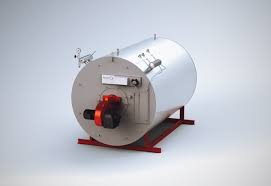
Oct . 18, 2024 14:14 Back to list
Understanding the Functionality of Steam Boiler Systems and Their Operational Mechanisms
Understanding How Steam Boiler Systems Work
Steam boiler systems are crucial components in various industries, providing necessary heat and energy for manufacturing processes, comfort heating, and power generation. A steam boiler is essentially a closed vessel that converts water into steam through the application of heat. This process involves several key components and principles that ensure efficiency and safety.
Basic Components of a Steam Boiler System
1. Boiler Shell The outer shell encompasses the internal components and provides structural integrity to the boiler. It is where the water is heated and transformed into steam.
2. Burner The burner is responsible for supplying the fuel necessary to generate heat. It combines fuel with air in the correct proportion to enable efficient combustion.
3. Heat Exchanger The heat exchanger helps transfer heat from the burner to the water without allowing the two to mix. This process heats the water, turning it into steam.
4. Steam Drum The steam drum is the upper part of the boiler where steam collects after generation. It maintains the steam pressure and provides a space for the separation of steam from water.
5. Controls and Safety Devices Modern steam boiler systems are equipped with a variety of controls and safety devices to monitor and maintain temperature and pressure levels and to prevent dangerous situations from arising.
The Process of Generating Steam
The operation of a steam boiler begins with filling the boiler shell with water. The burner ignites, heating the water until it reaches its boiling point. As water continues to heat, it generates steam, which rises to the steam drum. Here, the steam is separated from any residual water.
how steam boiler systems work

The generated steam is then directed through pipes to various applications, which could range from heating buildings to driving turbines in power plants. The efficiency of this process depends significantly on both the quality of the fuel used and the design of the boiler itself.
Types of Fuel
Various types of fuel can be used in steam boilers, including natural gas, oil, coal, and even biomass. The choice of fuel affects not only the operation costs but also the emissions and environmental impact of the steam boiler system. With increasing awareness of environmental issues, many industries are transitioning to cleaner fuel options to reduce their carbon footprint.
Efficiency and Maintenance
For a steam boiler system to operate efficiently, proper maintenance is essential. Regular checks on the burner, heat exchanger, and safety devices help prevent malfunctions that could lead to inefficiencies or hazardous situations. Additionally, boiler efficiency can be enhanced through regular water treatment to prevent scale buildup and corrosion inside the boiler, which can significantly impair performance.
Safety Concerns
Safety is a crucial aspect of operating steam boiler systems. High pressure and temperature can lead to catastrophic failures if not carefully managed. Boilers are equipped with numerous safety features, such as pressure relief valves that automatically release steam when the pressure exceeds a safe limit. Operators are also trained to monitor pressure gauges and temperature readings continuously.
Conclusion
In summary, steam boiler systems are integral to numerous industrial applications, generating steam that powers processes and provides heating. Understanding their components, the process of steam generation, and the importance of maintenance and safety can help operators maximize efficiency and minimize risks. As technology advances, the evolution of steam boiler systems aims to meet the ever-increasing energy demands while adhering to environmental standards. Proper knowledge and management of these systems are essential for ensuring that they operate safely and efficiently in our modern world.
-
High-Efficiency Commercial Oil Fired Steam Boiler for Industry
NewsJul.30,2025
-
High-Efficiency Biomass Fired Thermal Oil Boiler Solutions
NewsJul.30,2025
-
High Efficiency Gas Fired Thermal Oil Boiler for Industrial Heating
NewsJul.29,2025
-
High-Efficiency Gas Fired Hot Water Boiler for Sale – Reliable & Affordable
NewsJul.29,2025
-
High Efficiency Biomass Fired Hot Water Boiler for Industrial and Commercial Use
NewsJul.29,2025
-
High-Efficiency Biomass Fired Hot Water Boiler for Industrial Use
NewsJul.28,2025
Related PRODUCTS






















